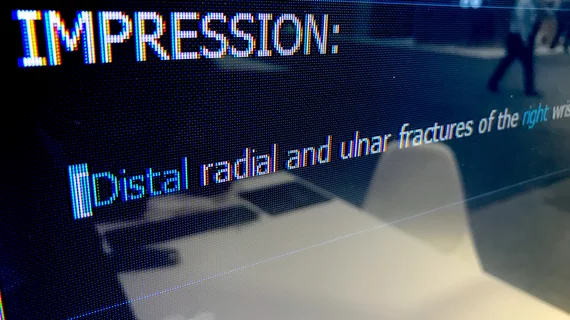How NLP can 'revolutionize' structured reporting
The continued emergence of natural language processing (NLP) has caught the eye of experts in radiology recently, with some suggesting its use could streamline the process of integrating structured reporting across the specialty.
A new paper published in Insights into Imaging proposes that the use of NLP could be the solution to the woes of structured reporting (SR) by integrating speech recognition features—a known hindrance to the implementation of structured reporting. Corresponding author of the new paper Tobias Jorg, with the Department of Diagnostic and Interventional Radiology at the University Medical Center of the Johannes Gutenberg in Germany, and colleagues explained why SR uptake remains low, despite its known benefits.
“SR templates must be laboriously completed using a mouse and keyboard, which may explain why SR use remains limited in clinical routine, despite its advantages,” the group wrote.
In short, they suggested that SR templates can interrupt workflows by slowing radiologists down when navigating through their dictation. To address the dilemma, the experts developed a tool that utilizes NLP speech recognition to convert dictated free text into a structured report. The system extracts structured content and then enters it into an SR template in RadLex terms.
The system was first tested on the reporting of urolithiasis CTs using both fake text about the condition and actual reports from patients with the diagnosis. It performed well on both sets, achieving F1 scores ranging from .90 to .98, respectively.
The group suggested that their system can help to address the “so-called look away problem" of structured reporting.
“As imaging data sets become increasingly large and complex, most of the radiologist’s cognitive effort should be focused on the images, rather than on complicated reporting templates that require the use of a mouse and keyboard for completion,” the experts noted, adding that NLP avoids the shortcomings of traditional free text reporting and known issues with speech recognition in structured reporting.
The authors concluded by suggesting that NLP has the potential to “revolutionize” structured reporting in the future.
The study can be viewed here.

